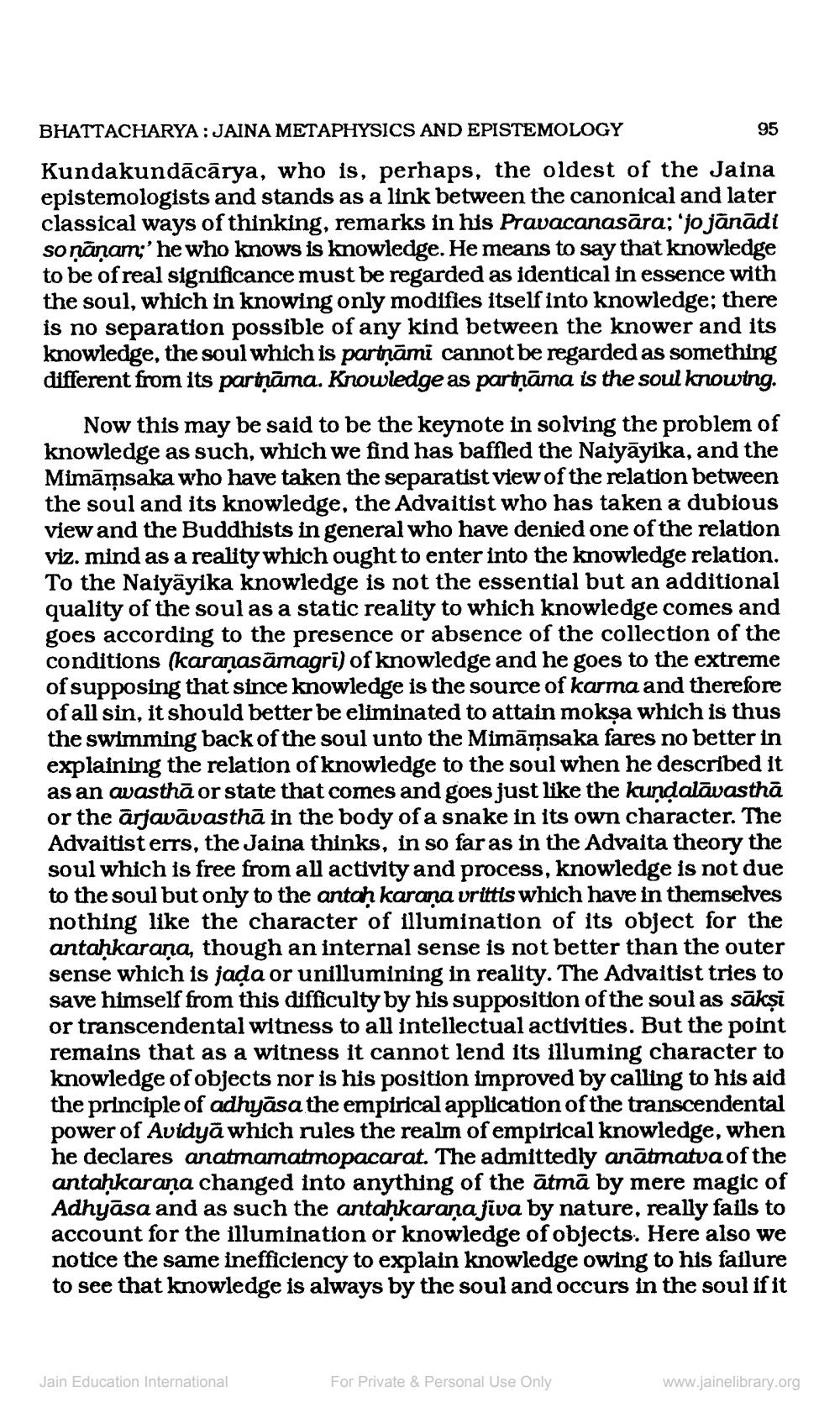________________
BHATTACHARYA : JAINA METAPHYSICS AND EPISTEMOLOGY
95
Kundakundācārya, who is, perhaps, the oldest of the Jaina epistemologists and stands as a link between the canonical and later classical ways of thinking, remarks in his Pravacanasāra; 'jo jānādi soņāņam;' he who knows is knowledge. He means to say that knowledge to be of real significance must be regarded as identical in essence with the soul, which in knowing only modifies itself into knowledge; there is no separation possible of any kind between the knower and its knowledge, the soul which is partņāmi cannot be regarded as something different from its pariņāma. Knowledge as parņāma is the soul knowing.
Now this may be said to be the keynote in solving the problem of knowledge as such, which we find has baffled the Naiyāyika, and the Mimāmsaka who have taken the separatist view of the relation between the soul and its knowledge, the Advaitist who has taken a dubious view and the Buddhists in general who have denied one of the relation viz. mind as a reality which ought to enter into the knowledge relation. To the Nalyāyika knowledge is not the essential but an additional quality of the soul as a static reality to which knowledge comes and goes according to the presence or absence of the collection of the conditions (karaņasāmagri) of knowledge and he goes to the extreme of supposing that since knowledge is the source of karma and therefore of all sin, it should better be eliminated to attain mokṣa which is thus the swimming back of the soul unto the Mimāmsaka fares no better in explaining the relation of knowledge to the soul when he described it as an avasthā or state that comes and goes just like the kundalāvasthā or the ārjavāvasthā in the body of a snake in its own character. The Advaitist errs, the Jaina thinks, in so far as in the Advaita theory the soul which is free from all activity and process, knowledge is not due to the soul but only to the antaḥ karana vrittis which have in themselves nothing like the character of illumination of its object for the antahkarana, though an internal sense is not better than the outer sense which is jaţa or unillumining in reality. The Advaitist tries to save himself from this difficulty by his supposition of the soul as sākşi or transcendental witness to all intellectual activities. But the point remains that as a witness it cannot lend its illuming character to knowledge of objects nor is his position improved by calling to his aid the principle of adhyāsa the empirical application of the transcendental power of Avidyāwhich rules the realm of empirical knowledge, when he declares anatmamatmopacarat. The admittedly anātmatva of the antaḥkaraña changed into anything of the ātmā by mere magic of Adhyāsa and as such the antahkarana jiva by nature, really fails to account for the illumination or knowledge of objects. Here also we notice the same inefficiency to explain knowledge owing to his failure to see that knowledge is always by the soul and occurs in the soul if it
Jain Education International
For Private & Personal Use Only
www.jainelibrary.org




